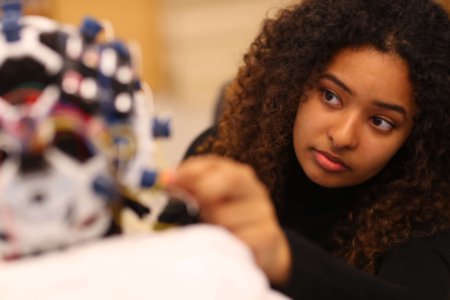World-class universities, a high standard of living and a thriving job market. These are some of the reasons students choose Canadian universities every year. Among its globally renowned institutions is Dalhousie University — known for its combination of innovative research, meaningful teaching, and a deep sense of social responsibility.
Dalhousie University ranks 12th among other Canadian universities QS World University Ranking. It is also a member of the U15 Group of Canadian Universities and has a Gold rating in sustainability (Sustainability Tracking, Assessment & Rating System).
While these achievements draw scores of students to its Halifax campus each year, it’s the unique offering of cooperative education that graduates remember the most — especially the experiences offered by the Faculty of Architecture and Planning.
Located in Nova Scotia and surrounded by ocean with 3,000 miles of coastline, the Faculty is based on Sexton Campus which is in the downtown core of Halifax, Canada’s second fastest growing city. Faculty resources available for student training include, computer labs, digital media workshops, fabrication facilities, and a wood shop. These spaces provide innovative and immersive education experiences and foster vibrant co-op programming opportunities, which are amongst the most established in the country.

Dalhousie University is not only one of the best universities across Canada and the world, but its programmes are some of the most experiential too. Source: Dalhousie University
“The work experience that students gain through the co-op programme at Dalhousie’s Faculty of Architecture and Planning provides them with valuable skills and insights that are instrumental to their success in the field,” says Connor Wallace, Faculty of Architecture and Planning alumni and Principal at ZZap Architecture + Planning. “At ZZap, we take pride in offering students’ opportunities to develop job-ready skills and prepare for the complex challenges associated with city building.”
Wallace is referring to crucial exposure that complements the programmes offered by Architecture and Planning at Dal. These include Bachelor of Environmental Design Studies (BEDS) and Master of Architecture (MArch) by the School of Architecture; as well as the Bachelor of Community Design and Master of Planning by the School of Planning.
While these programmes provide important theoretical grounding, co-op programmes make students confident and ready for the world of work. The university is one of the few Architecture and Planning programmes in Canada that offers cooperative education as part of its curriculum. BEDS, MArch and Master of Planning program students complete one or more co-op work terms at locations across Canada and internationally. Students in the Bachelor of Community Design Honours programme are placed in internships.
These co-op opportunities allow students access to a network of industry professionals offering valuable employment contacts for when they graduate. Students are paid market-competitive salaries in a professional workplace and when they graduate, they’ll have a suite of skills that distinguish them from others that did not take part in co-op programming. Their degree has a co-op designation too, further signalling their career-readiness.
Such big benefits of hands-on experience in the field of your choice are offered to all students within the Faculty of Architecture and Planning. Their commitment to student success is seen by the co-op placement rate that’s currently greater than 95%. For the summer of 2023, with more than 90 total co-op job postings available to Master of Architecture and Planning students, there were two jobs per student available. These are set to be valuable immersions — the Planning and Architecture co-op programmes are accredited through national peer review and highly respected by employers and graduating students.
“Dalhousie University is one of the few universities in Canada offering co-op opportunities to undergraduate and graduate students in the Urban Planning programme. During my co-op term, I had a very formative experience with the PEACH Research Unit, which helped me gain a skillset in social planning and develop connections with working professionals in the industry,” shares Masters of Planning student Raghav Parikh.
During his co-op with the PEACH Research Unit, Master of Planning student Parikh worked on a project to advance communication through signage that consisted of reviewing existing guidelines, conducting studies on wayfinding, training volunteers to conduct the survey, data analysis, and report writing. He also worked on projects that looked at built environmental indicators of accessibility and age-friendliness in rural communities.
Learn more about Dalhousie University’s cooperative education here.
Follow Dalhousie’s Faculty of Architecture and Planning on Facebook, Twitter, Instagram, LinkedIn.













